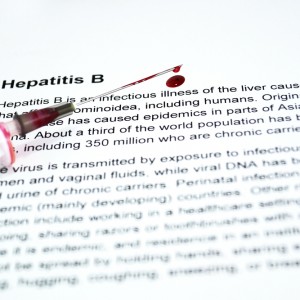 A new review on the effect of Chemotherapy or immunosuppressive therapy in reactivation of Hepatitis B virus infection entitled “Recent US Food and Drug Administration warnings on hepatitis B reactivation with immune-suppressing and anticancer drugs: Just the tip of the iceberg?” was published in Hepatology by Dr. Adrian M. Di Bisceglie from the Department of Internal Medicine, St. Louis, Missouri, along with colleagues.
A new review on the effect of Chemotherapy or immunosuppressive therapy in reactivation of Hepatitis B virus infection entitled “Recent US Food and Drug Administration warnings on hepatitis B reactivation with immune-suppressing and anticancer drugs: Just the tip of the iceberg?” was published in Hepatology by Dr. Adrian M. Di Bisceglie from the Department of Internal Medicine, St. Louis, Missouri, along with colleagues.
Hepatitis B virus (HBV) infects the liver and is transmitted through contact with bodily fluids from an infected individual, causing a severe or chronic disease of the liver. Although a vaccine has been available since 1982, more than two billion people worldwide are infected with the virus. In 2012, the Centers for Disease Control and Prevention (CDC) reported 3,000 severe cases of HBV in US.
The reactivation of hepatitis B after the use of immunosuppressive therapy may be serious and fatal. Recently, the Food and Drug Administration (FDA) called attention to the potential fatal risk of hepatitis B reactivation in patients being treated with the immune-suppressing and anti-cancer medications Arzerra (ofatumumab) and Rituxan (rituximab), which are monoclonal antibodies that bind the protein CD20 present in the B cells from the immune system. These drugs are used for the treatment of autoimmune diseases, leukemia, lymphoma and transplant rejection. This downplayed attention to the fact that reactivation of HBV may happen with a broader variety of immunosuppressive treatment used for benign or malignant diseases.
“While the FDA urged clinicians to screen patients for HBV prior to starting treatments with ofatumumab and rituximab to prevent the reoccurrence of the virus, this may be just the tip of the iceberg,” said Dr. Adrian Di Bisceglie in the press release.
In this review, the authors summarized 504 studies about the reactivation of hepatitis B virus infection. It’s not well understood how reactivation of HBV occurs; it seems that the immune response is not able to control the replication of the virus and this may induce the reactivation process. The HBV infection can be serious, causing acute liver failure and even death; a previous study reported a 25% death rate.
The authors suggested routine screening of HBV in all patients before starting treatment with immunosuppressives or anti-cancer drugs and the use of antiviral treatment to decrease the risk of severe or fatal reactivation of hepatitis B.
“Further study and cooperation between various medical disciplines will help broaden understanding of HBV reactivation” concluded Dr. Di Bisceglie.

